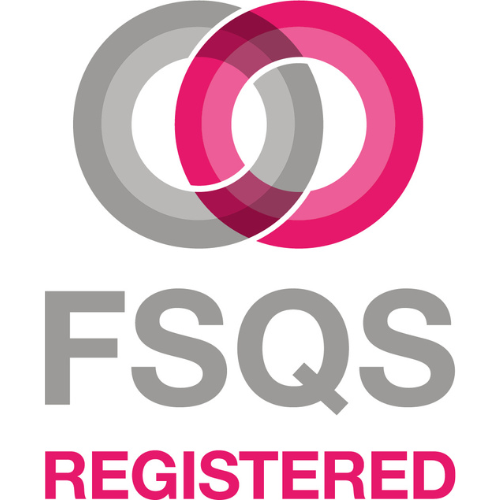The Financial Conduct Authority (FCA) recently released a consultation paper on their proposal to introduce a new Customer Duty. In this article we set out what the new proposals are, how they relate to the current FCA requirements and the potential impact of the proposals on the insurance sector. The full FCA consultation paper can be found here.
Background
The FCA are proposing to introduce a new Consumer Duty, with the aim of setting higher expectations for the standard of care that firms provide to Consumers. These proposals affect Insurers, Brokers and MGAs throughout the distribution chain, including the manufacturing and/or distribution of insurance products or services to Consumers (individuals acting outside of their course of business) and Small Medium Enterprises (SMEs). Going forward, when referring to “Consumers” or “Retail Clients” in this article, we are referring jointly to both Consumers and SMEs.
The Proposals & The Current Requirements
To achieve their aims, the FCA are proposing that the new Customer Duty will be comprised of three elements, a “Consumer Principle”, “Cross-Cutting Rules” and “Four Outcomes”.
Consumer Principle
The FCA are proposing that the new Consumer Principle will be added to the current 11 Principles of Business. The aim of new Principle is to make firms think more about customer outcomes. The regulator has proposed the following options:
-
- Option 1: “A firm must act to deliver good outcomes for retails clients”; or
- Option 2: “A firm must act in the best interests of retail clients.”
Option 1: The emphasis is on Consumer outcomes and a firm’s obligation to proactively deliver on those outcomes.
Option 2: The emphasis is on how the FCA wants firms to challenge themselves to do the right thing for consumers.
Existing Requirements
The existing Principles of Business and related handbook rules provides guidance on how firms should treat their customers. Within the guidance, Principle 6 states ‘A firm must pay due regard to the interest of its customers (which includes retail customers) and treat them fairly’. This is further supported by the 6 Consumer Outcomes , and ‘the customers best interest rule’ introduced by the Insurance Distribution Directive (IDD).
Cross-cutting Rules
The FCA are proposing to implement a set of cross-cutting Handbook rules and guidance which would develop and amplify the conduct standard they expect under the Consumer Principle.
The FCA are proposing that the Customer Duty’s Cross-cutting rules would require three key behaviours from firms, requiring them to:
-
- Take all reasonable steps to avoid causing foreseeable harm to customers.
This means insurance firms not causing harm to customers through their conduct, product or services and taking proactive steps to avoid it. - Take all reasonable steps to enable the customer to pursue their financial objectives.
This means customers should be empowered to make choices for themselves and remain ultimately responsible for their decisions and actions. - Act in good faith.
This means firms should be honest, fair, and open, allowing consumers to take responsibility for their choices and decisions.
- Take all reasonable steps to avoid causing foreseeable harm to customers.
Existing requirements
The proposed cross-cutting rules are closely aligned to Principle 6 of the Principles of Business, the 6 Consumer Outcomes and the overarching customer best interest rule under IDD, all of which we have already mentioned.
The new cross- cutting rules look to improve the conduct of firms, their employees, and directors. The introduction of the Senior Managers & Certification Regime (SM&CR) encourages greater individual accountability within the insurance sector. As with the proposed cross- cutting rules, SM&CR introduced a set of Conduct Rules , which outline the responsibility of senior managers, non- executive directors and most other employees at insurance firms. As with the ‘Consumer Principle’, the existing Conduct requirements are very much aligned with the proposed ‘Cross Cutting’ rules, firms should therefore be well placed to adopt the proposals.
Four Outcomes
The proposed Four Outcomes, represent the key elements of the firm-consumer relationship and includes how firms design, sell and service products including the key contact points across the customer journey. The four outcomes will be made up of a suite of rules and guidance that set out the FCA expectations in more granular detail.
The four outcomes are:
- Communications Outcome: Communications equip the consumer to make effective, timely, and properly informed decisions about financial products and services.
The FCA want firm’s communications to consistently support consumers by enabling them to make informed decisions about financial products and services. The FCA wants Consumers to be given the information they need, at the right time, and presented in a way they can understand.
Existing Requirements
Regulatory rules and requirements concerning communication to customers are already heavily represented in the regulatory framework for an insurance firm. Starting with the high-level Principles of Business, insurance firms must comply with Principle 7 “A firm must pay due regard to the information needs of its clients and communicate information to them in a way which is clear, fair and not misleading.”
There are examples of this outcome already being covered in the FCA handbook in different guises, for example ICOBS 2.2 Communication to Clients and Financial Promotions states, “when a firm communicates information, including a financial promotion to a customer, it must ensure that is it clear, fair and not misleading.” Another example is ICOBS 6.1 Providing Product Information, which states “an insurance firm must ensure customers are given appropriate information about a policy in good time and in a comprehensible form so that the customer can make an informed decision about the arrangement proposed.”
There are other requirements that firms should already comply with in regard to customer communications, this includes the Insurance Product Information Document (IPID) rules and disclosing last year’s premium upon renewal. The requirements are further supported by market standards for Contract Certainty, which requires certain contract documentation to be sent to a Consumer within 7 days of inception.
If your firm is currently complying with Principle 7, the applicable communication requirements in ICOBS as well as Contract Certainty, you are in a good position to comply with the new Communications outcome.
- Products and Services Outcome: Products and services are specially designed to meet the needs of consumers and sold to those whose needs they meet.
The FCA want all products and services that are sold to consumers to be fit for purpose. The FCA consider this an essential requirement for products and services to be able to represent fair value for consumers.
Existing Requirements
This outcome is a mirror image of the requirements brought in by the IDD and subsequently PROD 4 in the FCA handbook, which insurance firms must comply with. PROD 4 broadly sets out the requirements insurance manufacturers and distributors must meet when, approving a product or service, considering the target market of said product or service, product testing, distribution strategy and monitoring and reviewing a product or service. For a more detailed reminder of the Product Oversight and Governance requirements brought in under the IDD, please refer to our earlier article: Insurance Distribution Directive Deep Dive 1: Product Governance
This outcome also touches on Vulnerable Customers, which has been a hot topic of the FCA recently with Guidance for firms on the Fair Treatment of Vulnerable Customer being released in February 2021. This guidance requires insurance firms to build Vulnerable Customer controls into their Product Oversight and Approval Process. With firms required to consider if Vulnerable Customers may be present in the intended target market and to put Vulnerable Customer controls in place to monitor the performance of products and if any customer detriment has occurred.
The requirement on firms set out under the Product and Service Outcome are not new to the insurance market. The introduction of IDD in 2018 means firms have had to comply with more comprehensive PROD rules and put controls in place in line with the FCA Vulnerable Customer guidance. Therefore, firms should already have the appropriate Product Oversight and Governance Policies and procedures to comply with this outcome.
- Customer Service Outcome: Customer service meets the needs of consumers throughout their relationship with the firm. The FCA views good customer service as enabling consumers to realise the benefits of the products and services they buy. Consumers should not be hindered by the firm acting in its own interests.
Existing Requirements
There are several existing requirements in the FCA handbook which relate back to the Customer Service Outcome. These are set out in DISP Handling Complaints, ICOBS 6.1 Providing Product Information to Customers, PROD under Target Market, Distribution Strategy & Monitoring, ICOBS 7.1 the Right to Cancel and ICOBS 8.1 Handling claims by Insurers. If firms are complying with the current handbook rules in this area, then they are in a good position to comply with any new requirements brought in under this outcome.
- Price and Value Outcome: The price of products and services represents fair value for consumers.
The FCA are proposing to introduce a requirement for firms to set prices that present fair value for their target customers. Value means the relationship between the overall price to the customer and the benefits received by the customer.
The proposed requirements would require all insurance firms to consider the price of products and services being offered at design stage and to monitor the value of the product or services throughout their lifecycle.
Existing Requirements
The FCA have focused on value and pricing in the General Insurance Market for number of years. This includes carrying out thematic work on the Value in the General Insurance Distribution chain in 2019 and producing a Policy Statement on General Insurance Pricing Practices in 2020. As the result of harm found in the pricing practices review, namely centred around firms “price walking”, the FCA released a policy statement last week setting out the new pricing rules, we will be publishing an article on the effects of the policy statement shortly so please look out for this.
We would recommend that firms play close attention to both the General Insurance Pricing Practices Policy Statement and the new handbook rules born out of this Price and Value outcome. Firms should begin to proactively assess the benefits Consumers can reasonably expect from their product or services. This includes consideration for the price paid for their goods or services, as well as analysing if their distribution strategy is leading to better value for the consumer. All considerations should be built into your firms Product Approval and Monitoring processes.
The six outcomes of TCF
The four proposed outcomes would further build on the existing six consumer outcomes to ensure the fair treatment of consumers. The existing six consumer outcomes are:
- Outcome 1: Consumers can be confident they are dealing with firms where the fair treatment of customers is central to the corporate culture.
- Outcome 2: Products and services marketed and sold in the retail market are designed to meet the needs of identified consumer groups and are targeted accordingly.
- Outcome 3: Consumers are provided with clear information and are kept appropriately informed before, during and after the point of sale.
- Outcome 4: Where consumers receive advice, the advice is suitable and takes account of their circumstances.
- Outcome 5: Consumers are provided with products that perform as firms have led them to expect, and the associated service is of an acceptable standard and as they have been led to expect.
- Outcome 6: Consumers do not face unreasonable post-sale barriers imposed by firms to change product, switch provider, submit a claim or make a complaint.
There is close alignment between the existing six outcomes of TCF and the proposed four outcomes that we discussed earlier. In particular the proposed Products and Services Outcome which states ‘Products and services are specially designed to meet the needs of consumers and sold to those whose needs they meet’ is almost identical to Outcome two under the existing TCF rules which states ‘Products and services marketed and sold in the retail market are designed to meet the needs of identified consumer groups and are targeted accordingly’.
There is close alignment between Outcome three under the existing TCF requirements which states, ‘Consumers are provided with clear information and are kept appropriately informed before, during and after the point of sale’ and the proposed Communication Outcome which stresses that firms should equip the consumer to make effective, timely and informed decisions about financial products or services.
There is also alignment between the proposed Customer Service Outcome which states customer service should meet the needs of the consumer throughout their relationship with the firm and Outcome 5 of the existing TCF rules which emphasis service should be of an ‘acceptable standard’.
Of the four proposed outcomes the Price and Value Outcome is the one to note. The existing TCF requirements do not make specific reference to price, an area the FCA has become increasingly interested in. The FCA wants firms to ensure the price of products and services represents fair value for consumers as can be seen from their recently released final Policy Statement on General Insurance Pricing Practices.
Impact on the Retail Insurance Market
As you can see from our analysis, the proposed consumer outcomes are very similar to the rules already in place. The language used is slightly different, however the underlying requirements for firms remains consistent. The FCA are proposing new outcomes, however the only real change is in the area of pricing.
If the intention is to reemphasise the importance of TCF and Conduct Risk to firms and the FCA is aiming for a paradigm shift there is something missing: a real change. What we see is merely a moving around of the chess pieces already on the board. To create that paradigm shift requires a different approach to the supervision of firms and an increase in activity such as greater use of S.166 reviews and the use of enforcement and remediation. For the FCA to truly achieve any fundamental change it will need something else which is missing: resources.
In the meantime, what regulated firms could really do with is a consolidation of all of the existing rules. The FCA continue to build on existing rules and requirements and the proposals outlined here are another example of this. However, there are still TCF guidance and requirements in circulation that were introduced almost as far back as the time when the FSA regulated the UK. The FCA should consider consolidating the existing rule book including all the Policy Statements relating to TCF, Conduct Risk and Pricing to provide firms with greater clarity and ease of understanding what is required of them. Such an approach would also create for the FCA the efficiencies needed to allow for a more targeted supervisory approach. This change in approach would ultimately mean better protection for the consumer.
If you would like to know more about the new Customer Duty proposal, please do get in contact.
Computers4Schools
ICSR is supporting the Insurance Community initiative 'Computers4Schools'. Find out more about the way you and your organisation can support this by watching this video narrated by Huw Evans, Director General of the ABI.











